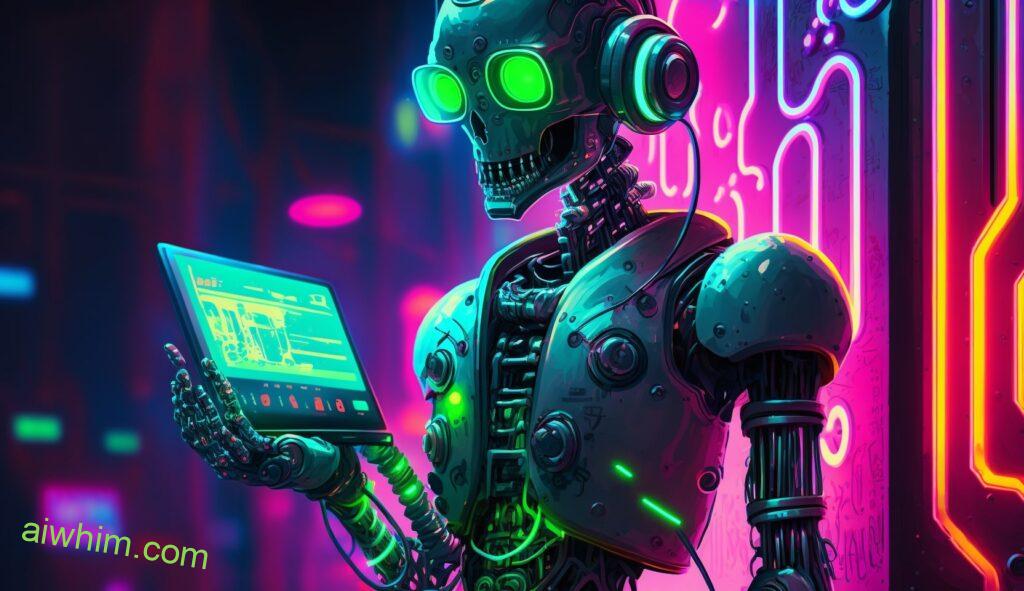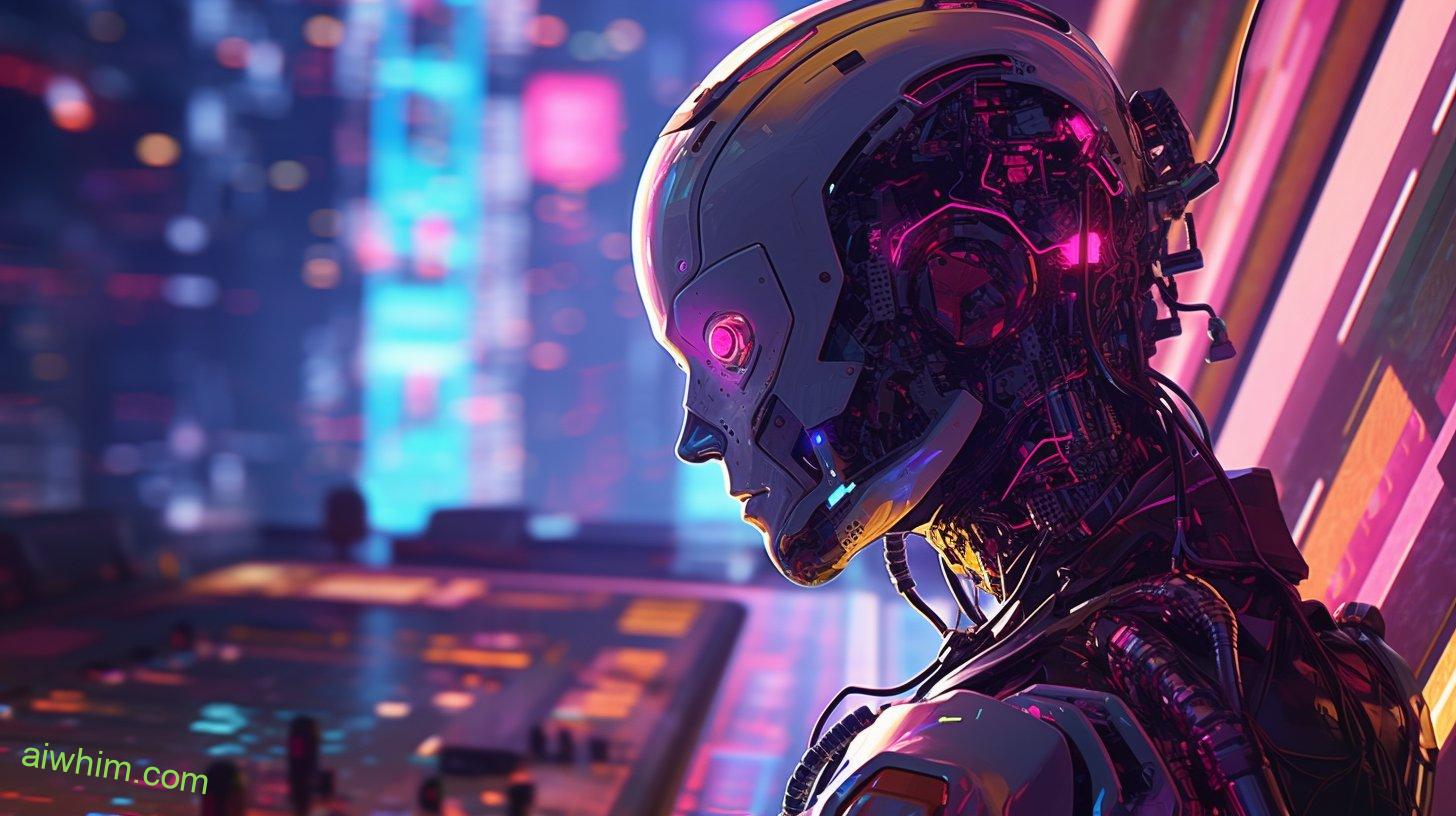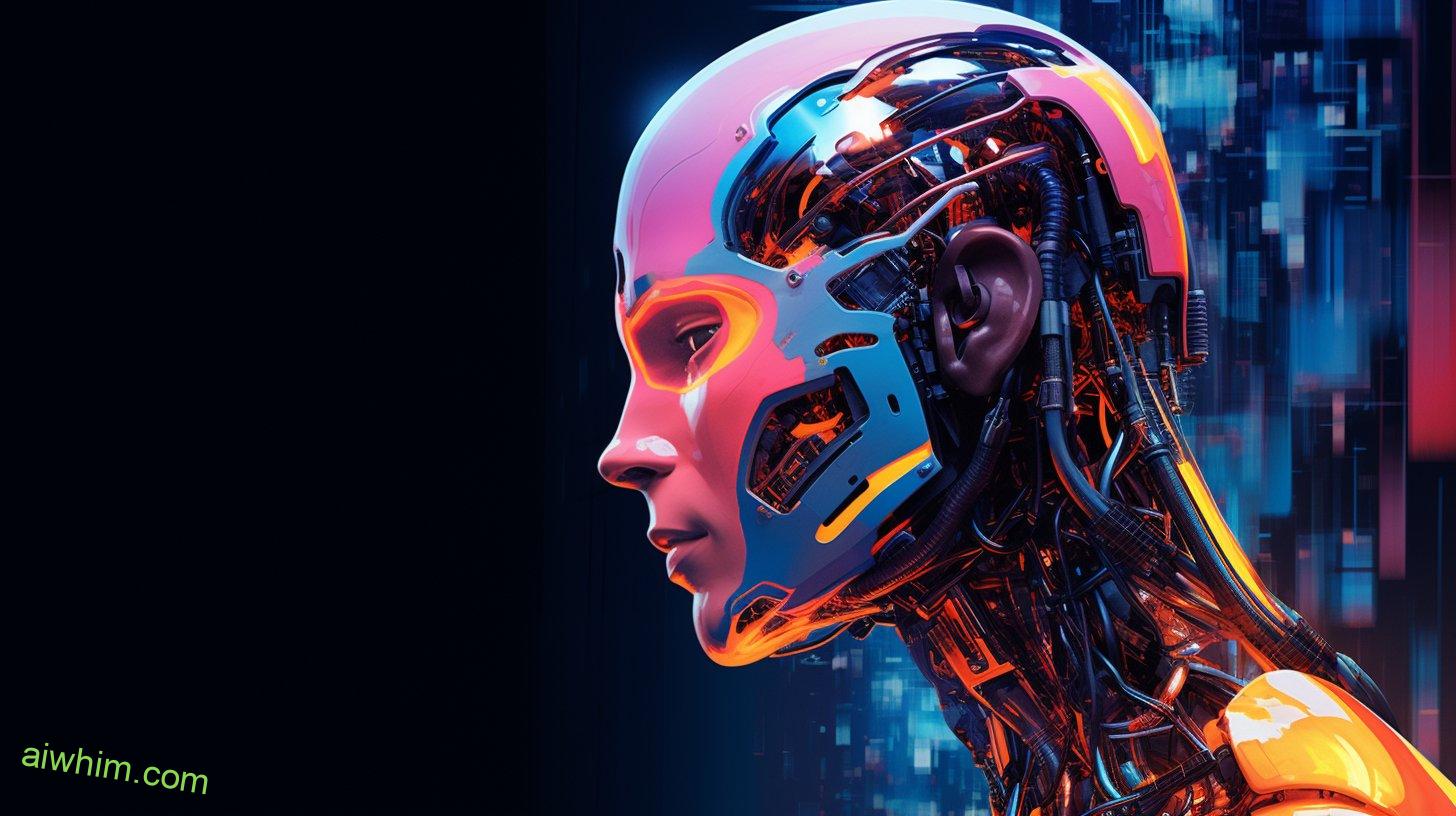Are you a pharmacist concerned that your job might one day be replaced by chatbots and AI? You’re not alone. It’s an understandable fear, especially in this age of technological advancement. But what are the real risks? In this article, we discuss whether or not pharmacists should be worried about their jobs becoming obsolete due to artificial intelligence.
In recent years, advances in technology have revolutionized many industries—including healthcare—by introducing innovations such as chatbot-based virtual assistants and automated drug dispensing machines. As these technologies become more commonplace, questions arise as to how they may affect traditional roles like those of pharmacists. Could these new tools eventually take over the entire profession? Or are there still safeguards in place to ensure human expertise is never fully replaced?
We dive into these issues head on to provide clarity and peace of mind for all pharmacists who worry about losing their jobs due to automation. Read on to discover if this threat is real or just a myth.

Definition Of Automation And AI
The thought of automation and AI conjures up visions of a world where robots rule the roost. But what does this really mean for jobs? To understand, we must first look at what these concepts truly mean. Automation is defined as the use of machines to perform tasks that would otherwise have been done by humans. On the other hand, artificial intelligence (AI) is a type of technology which seeks to mimic human cognitive functions such as problem solving, decision making and learning. This means that computers can learn from experience and adapt their behavior accordingly. So how do these two technologies combine to impact our daily lives?
When it comes to pharmacy work specifically, both automation and AI are being used in various ways including automated dispensing systems, drug-checking software, robotic prescription fulfilment services, virtual pharmacists and more. In short, automation and AI are slowly taking over many aspects of pharmacist roles – but this doesn’t necessarily mean they will completely replace humans in all areas anytime soon. Instead, they’re simply giving us new opportunities to improve efficiency while freeing up time for more complex tasks.
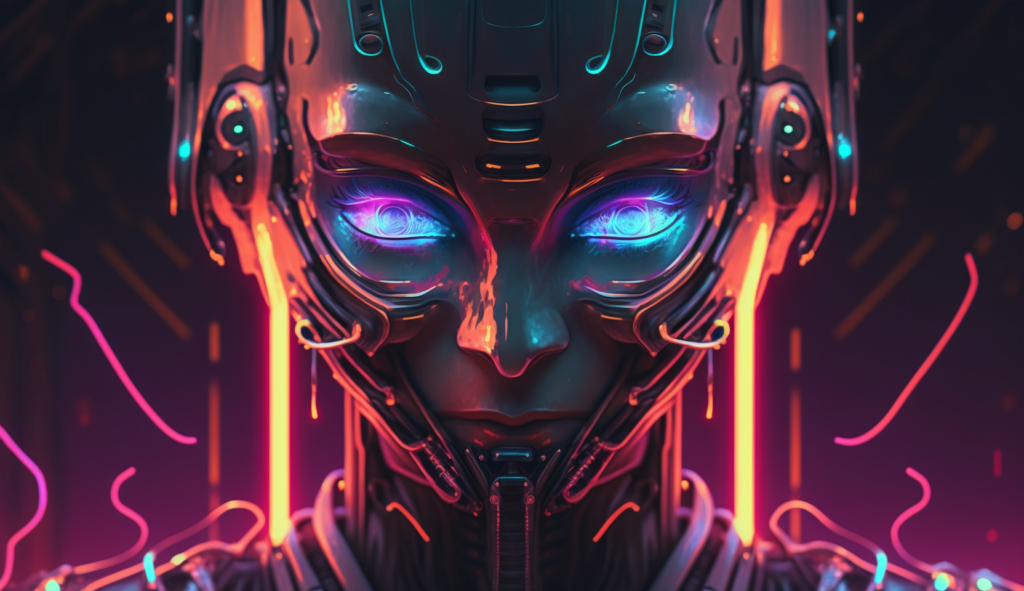
Furthermore, this article offers valuable insights into how AI is changing the landscape of nursing jobs. (Click to read.)
Impact Of Technology On Healthcare Professions
The impact of automation and AI on healthcare professions is becoming increasingly evident. In particular, the role of pharmacists is shifting as new technologies enter the scene. As machines become more sophisticated, there is a risk that chatbots and AI could potentially replace many aspects of human-based pharmacy services.
There are several ways in which technology can affect pharmacists:
- Chatbots may be able to accurately answer patient questions about medication information or side effects
- Artificial intelligence can analyze large amounts of data quickly, allowing for faster decision making
- Automated systems could reduce manual labor by performing routine tasks such as counting pills and filling prescriptions
- Robotic systems may eventually take over some of the clinical duties currently done by pharmacists, including drug dispensing and compounding medications
- Some online pharmacies offer automated refill options with minimal customer interaction
Although technological advancements have created efficiencies in certain areas of pharmacy practice, they also introduce a range of challenges for pharmacists. It’s important to recognize that this kind of progress comes with both positive and negative implications for healthcare professionals. Pharmacists must stay informed about these changes if they hope to remain competitive in the job market. Adaptability will be key if they hope to maintain their relevance among other health care providers. To thrive in an ever changing environment requires staying up to date on industry trends while proving one’s worth through continuing education courses and certifications.
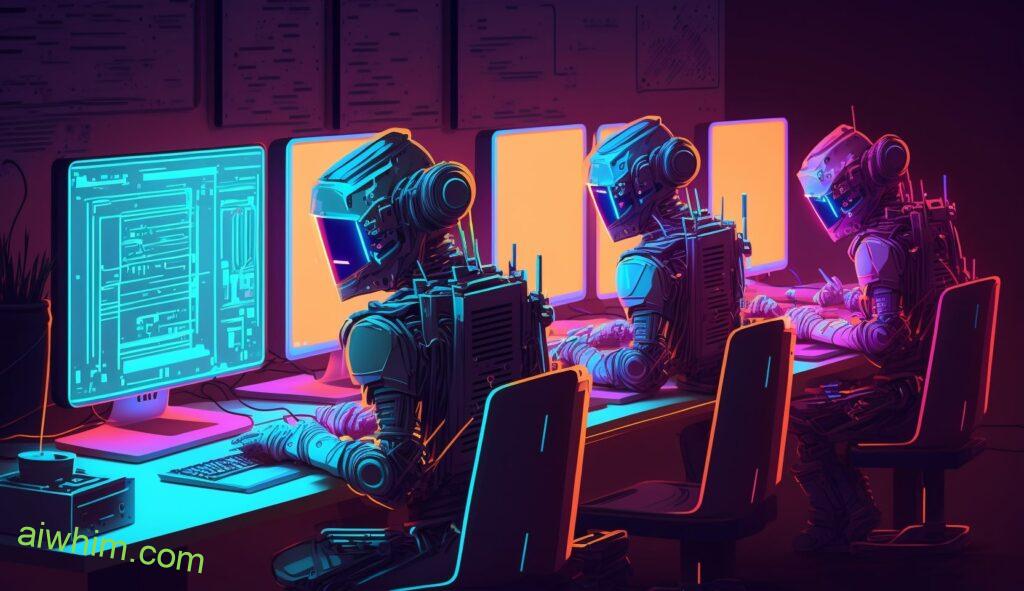
Additionally, this article provides an in-depth analysis of how AI is affecting dentist careers. (Click to read.)
Advantages Of Chatbots And AI In Pharmacy Care
Chatbots and AI are like a breath of fresh air to the pharmacy profession. They offer many advantages that can help pharmacists improve their job performance, save time, and increase patient care.
For example, chatbots provide automated customer service that helps customers find answers quickly with minimal effort from the pharmacist. Instead of spending valuable time answering questions on the phone or dealing with paperwork, pharmacists can focus on more important tasks such as dispensing medication, maintaining accurate records and monitoring drug interactions. This allows for greater efficiency in providing quality care to patients.
AI-powered systems also offer unique insights into patient information by analyzing large amounts of data collected over time. These insights could be used to identify potential drug interactions between different medications or suggest alternative treatments based on individual needs. This can reduce medical errors and ensure better overall outcomes for patients. Furthermore, these insights allow pharmacists to stay up-to-date on current trends and best practices in the field so they can continue to provide high-quality healthcare services.
In short, chatbots and AI have the potential to revolutionize pharmacy care in both saving time and improving patient outcomes. From automating customer service inquiries to offering personalized treatment recommendations, there is no doubt that this technology will play an increasingly important role in pharmacies across the country going forward.
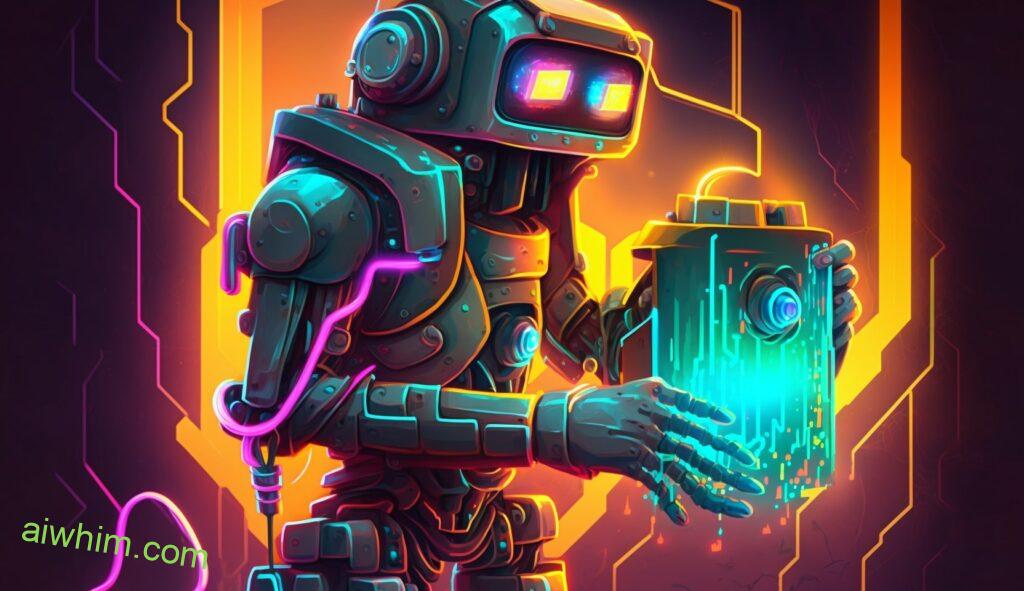
Moreover, we have an informative article that discusses how AI is altering the dynamics of medical transcriptionist jobs. (Click to read.)
Challenges Presented By Automation To Pharmacists
The rise of automation in the pharmacy world presents a number of challenges to traditional pharmacists. Chatbots and AI have already begun to replace some of the roles traditionally done by human pharmacists, such as processing orders and answering customer questions. This has raised significant concerns about job security for current and aspiring pharmacists, as well as potential implications for patient safety.
Automation has also made it easier for non-pharmacists to access prescription drugs without a pharmacist’s supervision or knowledge. Automated systems can process prescriptions quickly and accurately, but they cannot detect changes in health status that could potentially lead to drug interactions or other complications. In addition, relying on automated systems can reduce the quality of communication between patients and their pharmacists—a critical partnership when managing medications safely.
These issues present an important challenge to the pharmacy profession: how do you ensure safe medication use while still taking advantage of advances in technology? Pharmacists must continue pushing forward, advocating for patient safety while embracing meaningful technological advancements that will ultimately benefit both them and their patients.
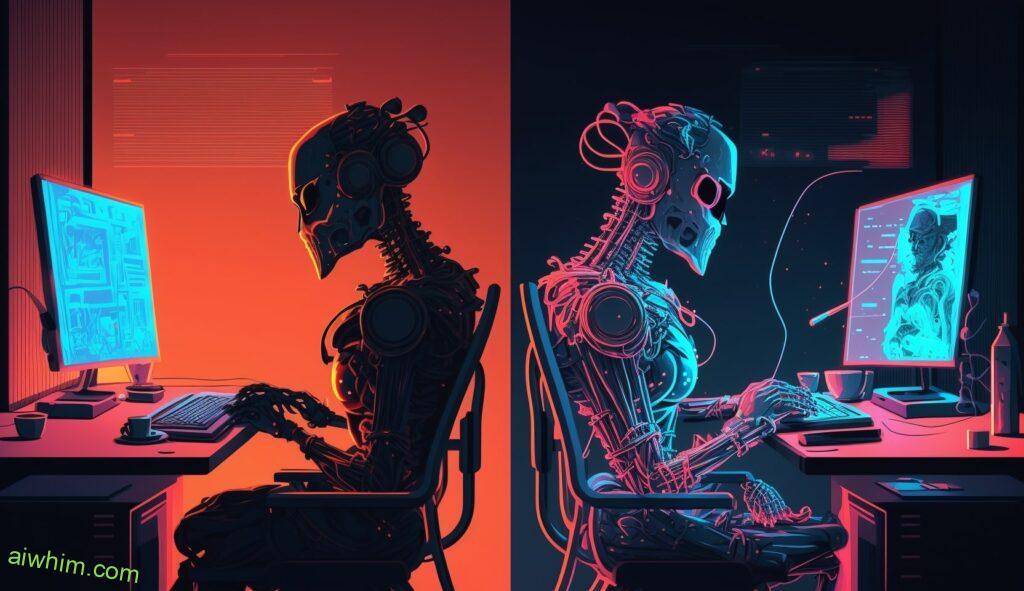
Furthermore, we recommend reading this article that explores the ways AI is impacting veterinarian careers. (Click to read.)
Current State Of Pharmacist Employment
Transition: Despite the challenges presented by automation, the employment opportunities for pharmacists remain strong.
As the old saying goes, “Change is inevitable” and no industry is immune to it. The pharmacy sector has certainly seen its share of transformation over recent years, from advances in technology to changes in healthcare policies. With all these shifts happening around them, many people are wondering if their career as a pharmacist will soon be replaced by chatbots or AI-driven solutions.
The good news is that there is currently little risk of pharmacists being completely displaced by automation. In fact, most experts agree that machines can never replace the human touch when it comes to providing quality care and service. Pharmacists still have an important role to play in helping patients understand their medication and answering any questions they may have about drug interactions or side effects. As such, job security remains high among those who choose to pursue a career in this field.
In addition, with the demand for qualified personnel increasing steadily each year due to population growth and medical advancements, pharmacists can expect plenty of job openings available throughout their professional lives. This means that even if some aspects of a pharmacist’s job become automated down the line, there should still be ample opportunity for those already established in this profession to continue working without fear of becoming obsolete anytime soon.
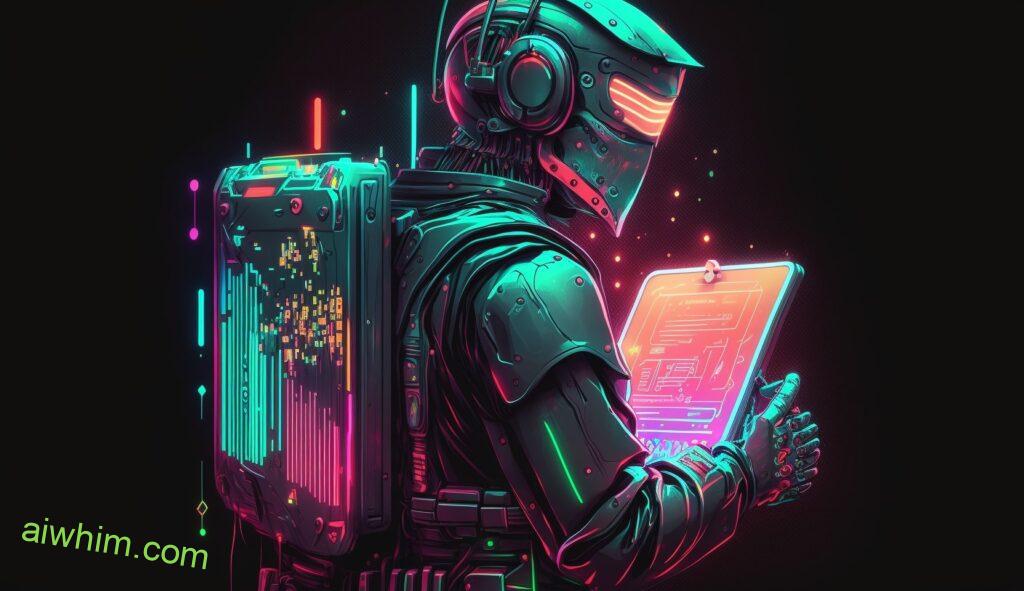
What Skills Are Required For Pharmacists To Remain Relevant?
Pharmacists must be equipped with the right skills to remain relevant in the ever-evolving healthcare system. They need to have an understanding of drug therapies, disease states and treatment options. Additionally, pharmacists should possess strong communication and interpersonal skills so they can effectively inform patients about their medications and collaborate with other healthcare professionals on patient care plans.
Moreover, pharmacists need to stay up-to-date on advancements in technology so that they are able to integrate it into their practice. This could include ePrescribing systems or automated medication dispensing machines for improved accuracy and efficiency when providing patient services. Pharmacists also need to understand how to use data analytics tools such as clinical decision support systems which help identify potential risks associated with certain treatments. With this knowledge, they can better assess a patient’s condition and provide more informed advice regarding their care plan. Ultimately, these skills will ensure that pharmacists remain valuable members of the healthcare team even if chatbots and AI begin taking over some aspects of pharmacy practice.
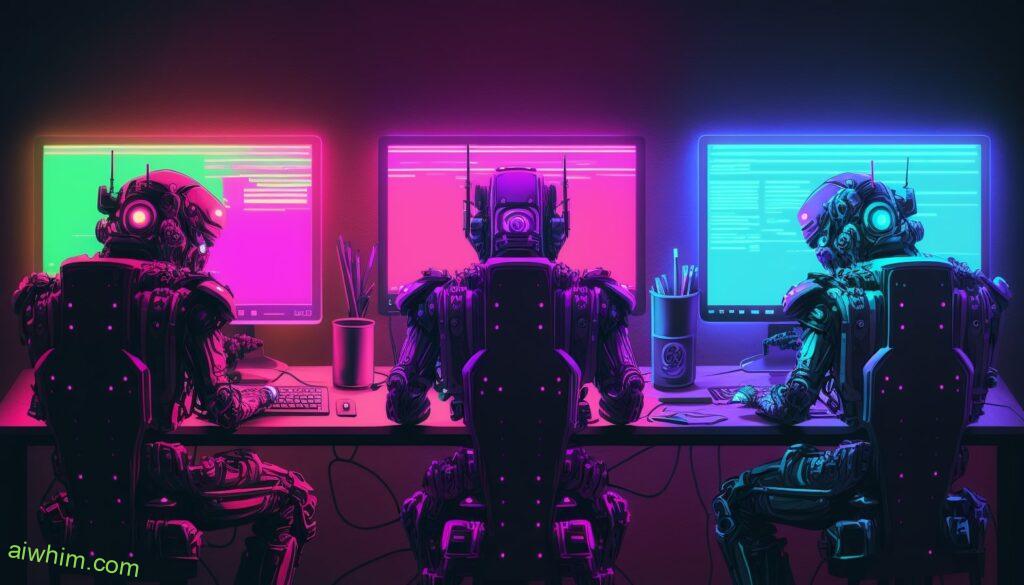
Role Of Education In Developing Career-Ready Skills
Ironically, there is no risk that pharmacist jobs will be replaced by chatbots and AI. Education remains the key to preparing for such a career. It provides students with the tools necessary to succeed in their chosen field and develop skills they can use throughout their professional life.
The education system should equip those pursuing a career in pharmacy with knowledge of medicine, pharmacology, ethics and legislation related to drugs and treatments. Additionally, it must also instill important qualities like critical thinking and problem-solving abilities; leadership skills; emotional intelligence; communication capabilities; as well as interpersonal attributes like collaboration, empathy and respect. All these characteristics are essential for success in any profession but especially when dealing with sensitive medical matters.
By developing strong foundations through an effective learning environment – one which encourages creativity, exploration and growth – individuals can create the path towards becoming not only competent professionals but industry leaders who are capable of driving change within organizations or even entire sectors. With this kind of empowered mindset, graduates from the world’s best educational institutions have all the potential to help shape the future healthcare systems.
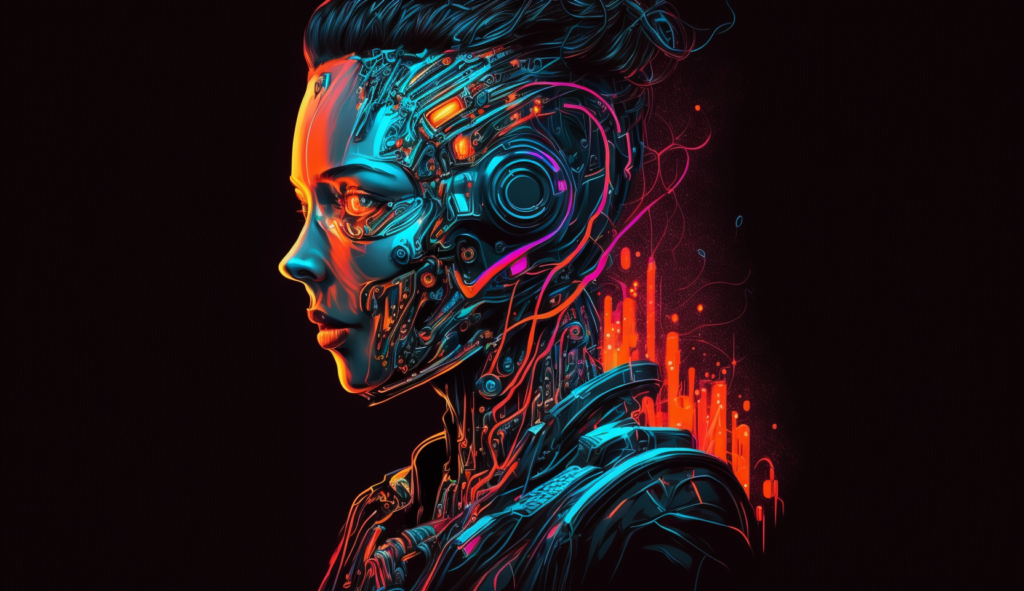
Regulatory Challenges Posed By Automation
As technology progresses, it is important to consider the potential regulatory challenges posed by automation. Chatbots and artificial intelligence (AI) are increasingly being used in a variety of fields, including pharmacy. While this may offer some advantages such as higher levels of accuracy and efficiency, there are also numerous risks that must be addressed.
The most pressing concern surrounding automated systems is whether they can replace humans entirely. In response to this question, many experts maintain that these technologies should not be seen as replacements for human pharmacists but rather as tools designed to supplement their work. Automated systems need to be carefully monitored so that errors do not occur; otherwise, incorrect medications could potentially lead to serious health issues or even death. Moreover, since AI-powered chatbots rely on algorithms which may overlook certain nuances in patient cases or fail to fully understand complex medical information, humans must always remain involved in the decision making process when dispensing medication.
Regulatory bodies have an obligation to ensure that automated systems comply with all relevant laws and regulations while still allowing enough flexibility for innovation. This requires governments around the world to stay up-to-date with advancements in AI technology and develop appropriate measures that protect consumers from any potential misuse of automated systems. As these technologies continue to evolve rapidly, it is essential that regulators keep pace and create policies that promote safety while simultaneously encouraging innovation within the healthcare industry.
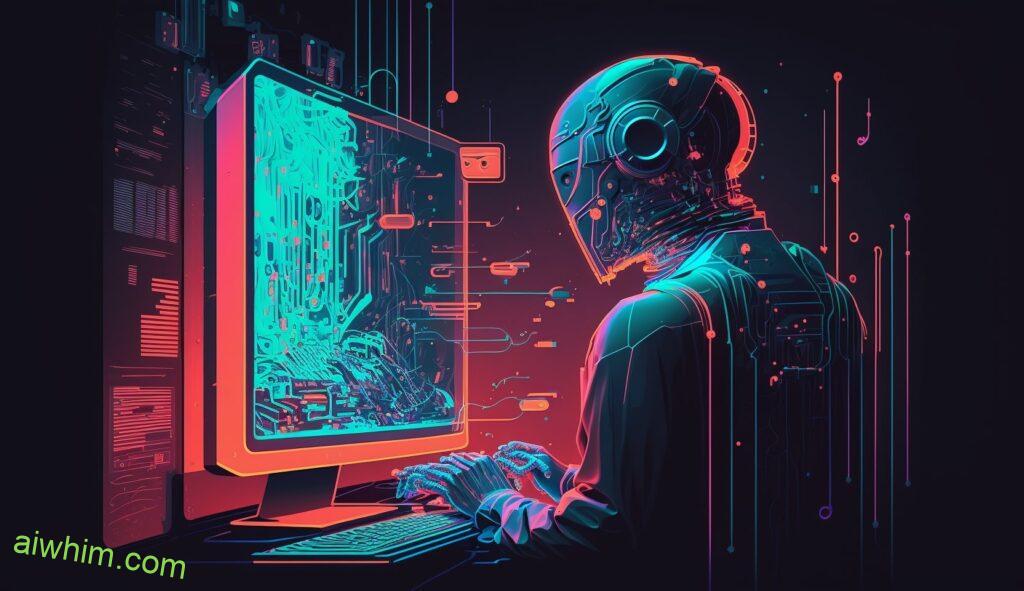
Benefits To Patients From Use Of Chatbots And AI
The use of chatbots and AI in the pharmacy industry has sparked both excitement and concern. Could these new technologies replace pharmacists? It’s a question that has yet to be answered, but one thing is certain: they can provide tangible benefits to patients by increasing access to care and improving outcomes.
Chatbots are an efficient way for pharmacies to communicate with customers quickly and accurately. With just a few clicks, a customer can get answers to their questions without waiting on hold or having to speak directly with someone over the phone. This makes it easier for people who may not feel comfortable speaking about medical topics in person, such as those with language barriers or disabilities. Additionally, AI-based systems can help streamline processes like prescription verification – providing faster, more accurate results than manual checks could ever do.
By leveraging technology in this way, pharmacies have the potential to improve patient experience while also freeing up valuable time for pharmacists to focus on complex tasks that require more human judgment. Ultimately, this could lead to improved patient outcomes along with greater convenience and satisfaction from pharmacy services.
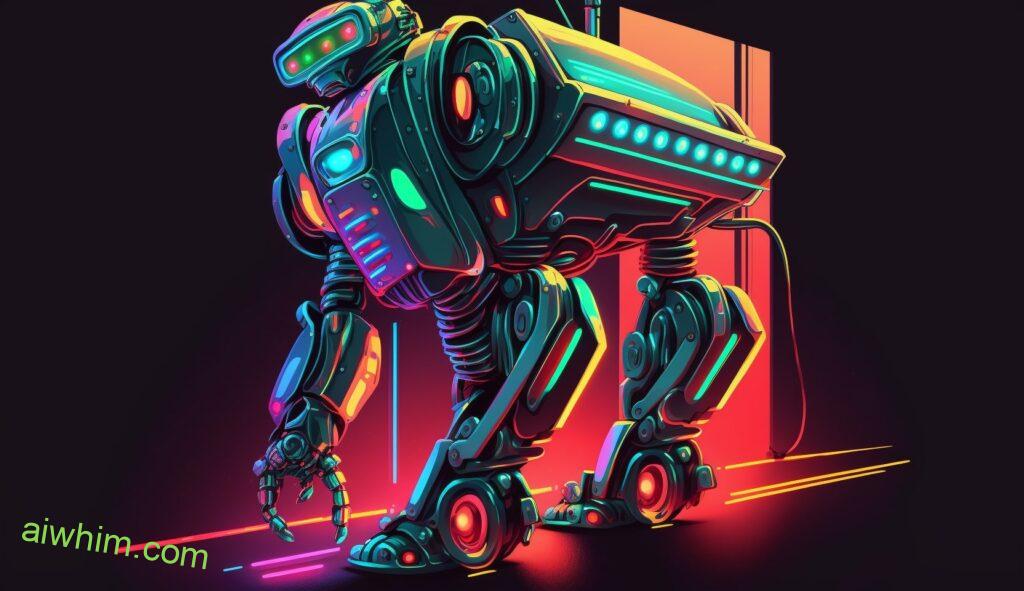
Potential Changes In Workplace Environment For Pharmacists
Despite the numerous patient benefits from using chatbots and AI, there is still concern among many pharmacists that their jobs may become obsolete. In particular, it has been suggested that these technologies could replace traditional pharmacy roles or even eliminate them altogether. While this potential change in workplace environment for pharmacists has yet to come to fruition, here are some ways in which it might:
- Pharmacists could be replaced by automated systems such as chatbots or AI programs that can provide advice on medications and health-related topics more quickly and accurately than a human pharmacist.
- Pharmacies may invest in new technology that streamlines processes like prescription filling and managing inventory, resulting in fewer staff being needed.
- Manual tasks traditionally done by pharmacists (e.g., counting pills) may be taken over by robots, leaving fewer opportunities for humans to do similar work.
- Customer service may move away from face-to-face interactions with pharmacists towards digital customer support provided by AI or virtual assistants.
The introduction of robotic automation into pharmacies would inevitably lead to changes in the workloads of existing employees as well as shifts in job descriptions and skill requirements. New skills may need to be developed if pharmacists wish to remain competitive in this changing landscape, such as proficiency with computer programming languages or data analysis techniques. Alternatively, they could choose to seek employment elsewhere where their existing knowledge base and experience would still prove valuable. All things considered, it is clear that significant changes lie ahead for those working within the profession of pharmacy should chatbots and AI continue making strides forward in accuracy, functionality and scope of use.
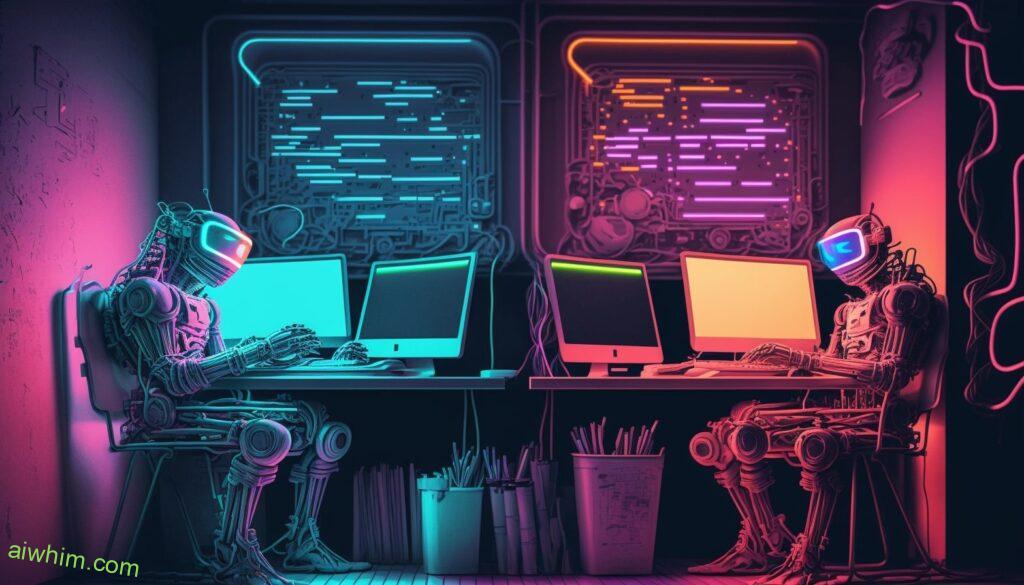
Shifts In Insurance Coverage For Automated Services
The rise of chatbots and AI in the medical field has brought about shifts in insurance coverage for automated services. Anecdotally, a physician recently had to reject a patient’s request for an appointment with her because her insurer refused to cover it. Instead, they offered to pay for an online consultation with a robot doctor – much to the patient’s disappointment. This is just one example of how insurers are increasingly favoring cheaper automation over traditional human-to-human care.
Data from leading healthcare institutions show that more than 60% of providers have experienced some form of payment denial or adjustment due to the use of robotics technology instead of humans. On top of this, reimbursement rates for automated services are nearly four times higher than those for face-to-face visits. As such, many doctors feel squeezed between declining reimbursements and rising costs associated with technological upgrades needed to make their practices competitive.
Overall, there appears to be an increasing trend towards providing financial incentives and rewards to organizations that embrace robotic technology — resulting in a shift away from traditional human-based service models. While these changes come with many potential benefits, patients may ultimately find themselves paying more out-of-pocket while receiving less personalized care as robots become commonplace within the healthcare system.

Capabilities And Limitations Of Automated Systems
The potential for automation to replace pharmacists is a real concern. While automated systems offer many advantages, such as the ability to quickly process orders and provide accurate information, their capabilities still have several limitations.
For example, an AI system can not assess a patient’s emotional state or consider lifestyle factors when providing advice. Machines also lack intuition and cannot draw on past experiences like a human can. Automated systems are unable to make intuitive leaps that lead to innovative solutions in response to complex problems.
Therefore, it’s highly unlikely that chatbots and AI will completely replace pharmacists any time soon. Pharmacists must remain vigilant in developing new skills and stay up-to-date with medical advancements so they can continue to fulfill their role as healthcare providers who use their expertise and compassion to support patients’ well-being.
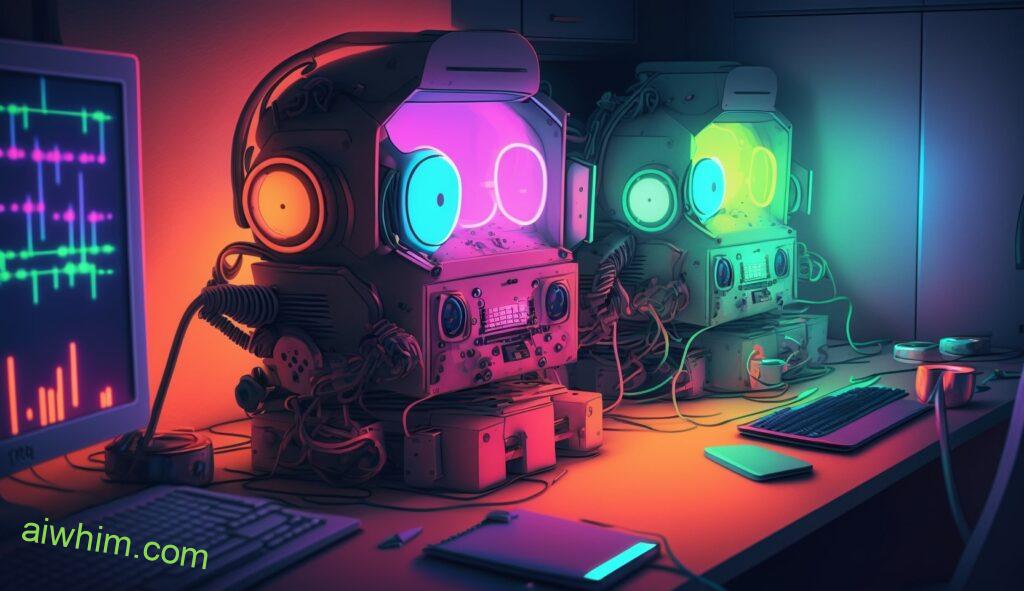
Ethical Considerations Replacing Human Jobs With Automation
The potential for chatbots and artificial intelligence (AI) to replace the roles of human workers, including pharmacists, raises a variety of ethical considerations. Firstly, there is the question of whether it is fair for machines to be taking away jobs that humans need in order to survive financially. Although some people argue that automation leads to more job opportunities overall due to increased efficiency and cost savings, this does not necessarily address the immediate impact on those who are replaced by AI or chatbots.
Secondly, there is an issue with how robots will interact with customers if they were to take over customer-facing tasks such as pharmacy work. Would these automated systems be able to provide satisfactory levels of product knowledge and service? This could lead to issues in terms of customer satisfaction and trustworthiness associated with products sold through automated means.
Finally, we must consider the implications of replacing skilled professionals like pharmacists with technology. Pharmacists’ knowledge and training has been honed over many years yet can potentially be replaced overnight by an AI system programmed with relevant information. Will this lower standards within healthcare services? The following list outlines key ethical points related to replacing human jobs with automation:
- Is it ethically permissible for machines to displace people from their livelihoods?
- How would automated systems interact with customers satisfactorily?
- What are the implications of reducing the quality of professional services?
It is clear then that any decision regarding replacing human jobs with automation carries significant moral weight which should weigh heavily upon all stakeholders involved in making decisions about introducing new technologies into workplaces.

What Can We Expect Going Forward?
As we’ve discussed, the ethical considerations of replacing human jobs with automation are complex and far-reaching. But what can we expect going forward?
First off, it’s clear that automation will continue to reduce labor costs in certain areas like production lines and call centers. Automation is especially well suited for tasks that involve repetitive motions or large amounts of data processing. As technology continues to evolve, more jobs may be replaced by machines; however, some positions remain relatively safe from being taken over by AI or chatbots. For example, most healthcare professionals such as doctors and pharmacists require a high degree of expertise that simply cannot be replicated by automated systems.
So while there’s no need to worry about your job security just yet if you’re a pharmacist, this doesn’t mean that current workers should become complacent either. To stay competitive in their field, people must constantly strive to develop new skills and knowledge – something robots and computers might never truly achieve. With its ever-increasing capabilities, technology could potentially impact all aspects of our lives sooner rather than later. It is essential for us to use this opportunity responsibly and thoughtfully so we can create an equitable future with opportunities for everyone regardless of their income level or background.

Summary And Final Thoughts
The job of a pharmacist is important, and the thought that it may one day be replaced by bots and AI can seem overwhelming. But is this really something you should fear? On the contrary, advancements in technology could provide more freedom to pharmacists; freeing up time for them to spend on better patient accomodation.
Here are three ways chatbots and AI could improve the role of pharmacists:
- Allowing them to focus less on administrative tasks such as paperwork and data entry.
- Enhancing their ability to give detailed information about drugs and dosages.
- Helping with drug interactions between prescriptions or over-the-counter medications.
Chatbots and AI offer an opportunity for pharmacists to take control of their profession rather than having it taken away from them. By utilizing these technologies, they will have more agency over how they fulfill their role within healthcare and potentially greater autonomy when it comes to making decisions related to patient care. This could result in improved outcomes while providing much needed relief from mundane tasks so pharmacists can focus on the aspects of their jobs that matter most – helping people get well faster!
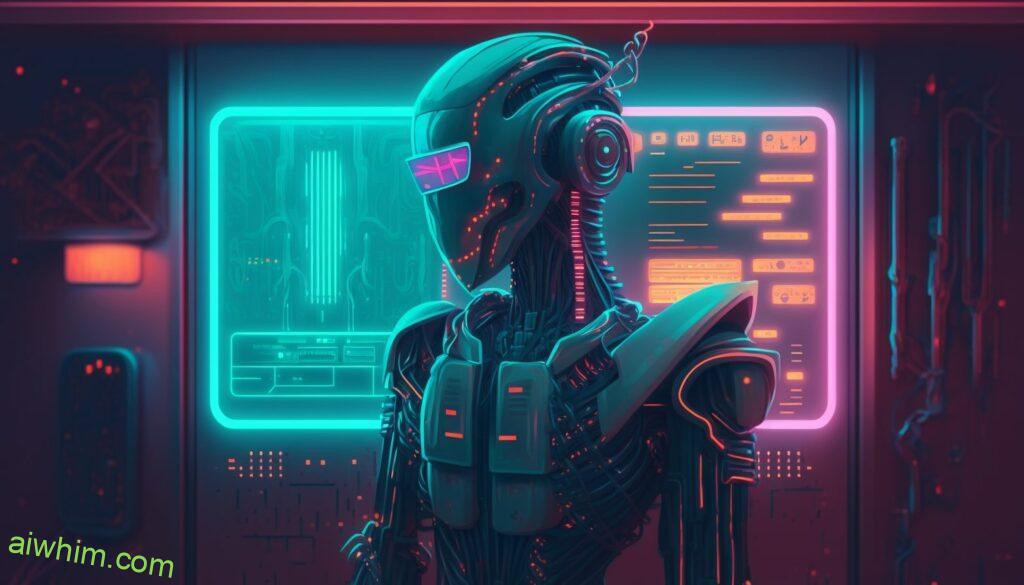
Conclusion
In conclusion, it is clear that automation and AI are here to stay. The impact of such technology has been both advantageous and challenging for pharmacists. While automated systems can help expedite certain tasks, they cannot replace human interactions entirely due to ethical considerations.
The current state of pharmacist employment indicates that there is no immediate risk of job loss or replacement by chatbots and AI. However, as technology continues to evolve rapidly over time, its capabilities expand which could lead to more widespread use further down the line. It is important for pharmacists to recognize this potential risk and be prepared in case it does occur one day.
However, by keeping up-to-date with technological advances while understanding their limitations and implications, pharmacists can ensure their long-term success in the ever-evolving digital landscape.
Author: Ole Paulson
Author Bio: I’m Ole and on this website, I share everything there is to know about Artificial Intelligence, and useful tips for using AI to our advantage. I have a background in data science and research and have been following the AI-space for years. You can read more about me in the “About” page.

